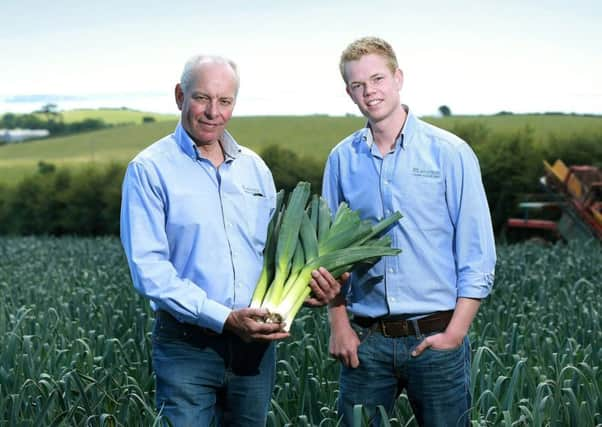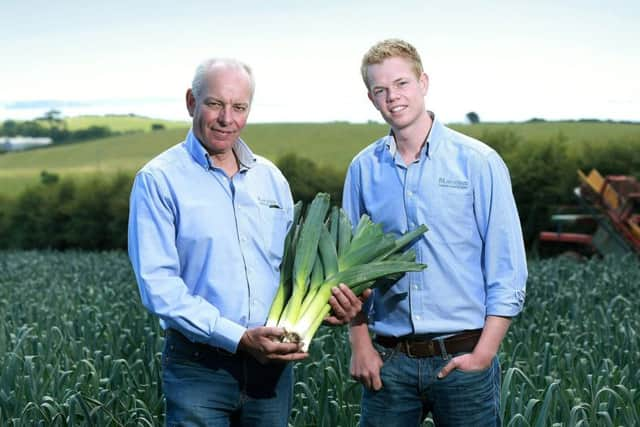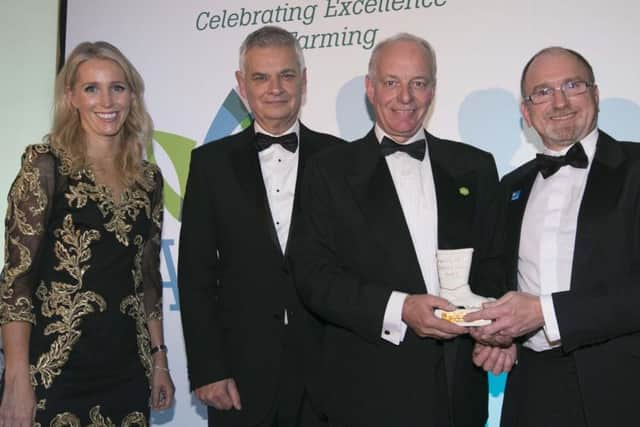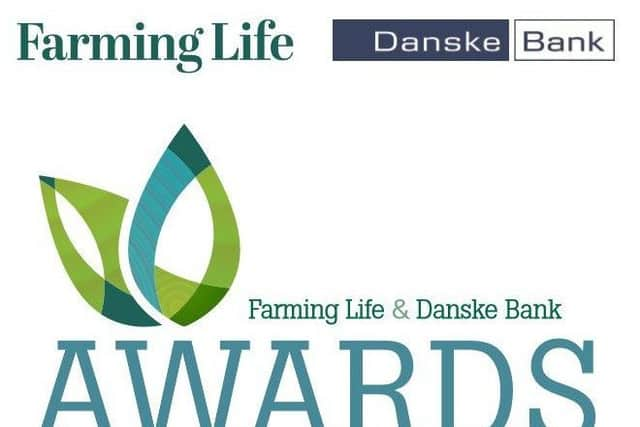FARMING LIFE AWARDS: '˜The win helped build the name of our business'


He said: “Many people in Northern Ireland want to purchase food from a farm that gives back, whether that’s to the local community or the local environment. We’re a member of a number of accreditation schemes that have a variety of requirements we must adhere to, including promoting wildlife biodiversity.”
In 2014, Roy began working with the Royal Society for the Protection of Birds (RSPB), who undertook a bird survey on his farm. The survey recorded 34 species of birds, 13 of which are classified as amber or red in the species of conservation concern list, including Yellowhammer and Linnet.
Advertisement
Hide AdAdvertisement
Hide Ad“Five years ago, I wouldn’t have known what a Yellowhammer was if it had flown past me. Now, I know what species are on our land, and I enjoy seeing them,” he explained.


Having held Certified Organic Status on 46 acres of his farm since 2000, Roy went a step further to incorporate the RSPB’s recommendations, including Hedgerow Management, Grass Margins, and Wild Bird Cover.
“We have a network of hawthorn and blackthorn hedges on the farm, which we manage in a way to benefit local wildlife. We generally cut our hedges every three years to allow them the chance to grow a dense structure, creating valuable nesting space for the birds on our farm, as well as being a good food source in winter,” said Roy.
“This spring, for the first time, we have sown in two acres of wild bird cover, which is a crop that is left unharvested and left to stand over the winter. We have a mix of oats, triticale and linseed. We are planning to bring children from local schools in to see it as part of the schools’ Bird Watch programme.”
Advertisement
Hide AdAdvertisement
Hide AdRoy believes farmers have a responsibility to protect the wildlife and preserve the land for future farming sustainability.


“Some people laugh at what I do because they think I’m wasting my time, but if everyone did something – and we’ve all got the resources – it all makes a difference,” he said.
It’s this can-do attitude that prompted the RSPB to nominate Roy for the Wildlife Farer of the Year award, and he was pleasantly surprised by the win.
“I was really chuffed. It’s the only wildlife-based award we’ve ever been entered into, and I’m proud the judges felt we’re doing a good job.”
Advertisement
Hide AdAdvertisement
Hide AdEntries are now open for the 2017 awards and Roy says he would advise others to apply.


“It raised our business profile” he said.
“We’re very close to the end-user – our produce goes from our pack house to the supermarket shelf, and getting an award like this helps build the name of our business.
‘‘From the wildlife perspective, we’ll continue with our conservation plans.
‘‘It doesn’t take a lot of effort to enter the awards if you know your business well, as I’m sure most people do.


Advertisement
Hide AdAdvertisement
Hide Ad‘‘I do think people here are a bit backwards about coming forward – we don’t like to blow our own trumpet – but there are times when we have to.”
Enter this year’s Farming Life Awards hereFARMING IN A WAY WHICH BENEFITS WILDLIFE
Roy’s farm is located on the shores of Strangford Lough, making it an important area for a range of different wildlife.
He has always farmed the arable land in a manner which aims to keep it in good condition; this not only helps production of vegetables but also means it can contribute towards the overall management of the environment.
Advertisement
Hide AdAdvertisement
Hide AdIn 2014 Roy began working with the RSPB who provided them with a free bird survey of the land, following this he has worked with them to help improve conditions for the species that were found there.
This has involved incorporating a number of measures into the farming system, which provide food and shelter for the different species using the farm.


From working with the RSPB Roy has learnt about the importance of providing the Big Three for birds on the farm.
These are the requirements that all birds need in order to survive, these being insect rich summer food for chicks, safe nesting space and seed food in the winter. He endeavours to provide all three of these requirements on his farm.
Advertisement
Hide AdAdvertisement
Hide AdAchieving organic status requires Roy to undertake practises which will benefit farmland wildlife. He had to ensure that he strictly adheres to Soil Association Herbicide and Pesticide guidance.
In doing this, his applications of herbicides and pesticides are well below that of an average vegetable producer in Northern Ireland. This has benefits for birds and other wildlife as they have a greater abundance of invertebrate and plant food.
Roy’s farm is part of a number of accreditation systems which require continual improvements in environmental management, of which biodiversity plays a large role.
It is part of the Tesco nurture, Marks and Spencer from Farm to Fork and Waitrose farm assessment.
Advertisement
Hide AdAdvertisement
Hide AdAll of these schemes highlight the steps Roy is taking to help farmland biodiversity, which he takes very seriously.
Achieving these accreditations proves to his customers that he is farming in a way which benefits wildlife.
He believes that the steps he has taken to help farm wildlife demonstrate that environmental management and agricultural production can go hand and hand and if worked in the right way, complement each other.
None of the environmental initiatives undertaken have had an impact on production, whilst a number have benefitted the farm business. His aim is to create a sustainable model for farming, by adopting a business model which is always looking for innovative ways of operating.
Advertisement
Hide AdAdvertisement
Hide AdRoy is keenly aware of the role which a healthy countryside plays for health and well-being for people.
He is a member of the Northern Ireland horticultural forum which frequently discusses this issue.
He believes that how land is managed plays a key role in this, so he does his best to ensure that it provides for local people.
Roy believes that farmers have a responsibility to pass on their land in better condition than they received it. ‘‘The next generation will be the ones tasked with managing it in the future and we feel that it’s important to give something of high quality for them to receive the benefits of in the future,’’ he said.